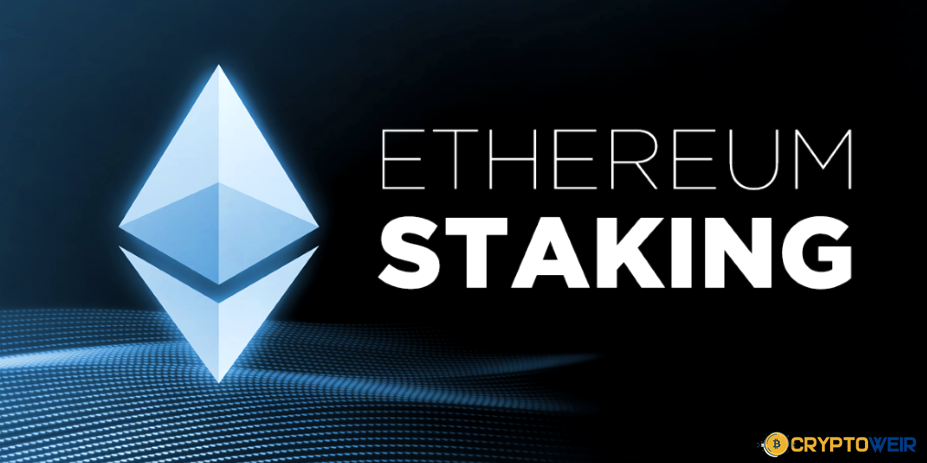
The cryptocurrency market continues to attract millions of new traders worldwide, creating unprecedented demand for professional education and credentials. A cryptocurrency trading course certification has become the gold standard for individuals seeking to establish credibility and expertise in this rapidly evolving financial sector. These specialized programs provide comprehensive training that covers everything from basic blockchain concepts to advanced trading strategies and risk management techniques.
Professional certification in cryptocurrency trading offers numerous advantages beyond basic knowledge acquisition. Certified traders often command higher salaries, gain access to exclusive trading opportunities, and build stronger client relationships based on verified expertise. As institutional adoption of digital assets accelerates, employers increasingly seek candidates with formal training and recognized credentials in cryptocurrency trading.
The journey toward obtaining a cryptocurrency trading course certification requires careful consideration of program quality, curriculum depth, and industry recognition. With numerous options available, selecting the right certification program can significantly impact your career trajectory and trading success. This comprehensive guide explores everything you need to know about cryptocurrency trading certifications, helping you make informed decisions about your professional development in the digital asset space.
Understanding Cryptocurrency Trading Certifications
Cryptocurrency trading certifications represent formal recognition of an individual’s knowledge and skills in digital asset trading and analysis. These programs typically combine theoretical education with practical training, ensuring graduates possess both conceptual understanding and real-world application abilities.
Professional certification programs differ significantly from casual online courses or self-study materials. They feature structured curricula developed by industry experts, standardized assessment methods, and ongoing continuing education requirements. Many programs also include hands-on trading simulations and mentorship opportunities that bridge the gap between theory and practice.
The cryptocurrency industry’s rapid evolution requires certification programs to stay current with technological developments, regulatory changes, and market innovations. Leading certification providers regularly update their curricula to reflect emerging trends like decentralized finance (DeFi), non-fungible tokens (NFTs), and institutional trading practices.
Most comprehensive certification programs cover fundamental topics including blockchain technology basics, market analysis techniques, trading psychology, risk management strategies, and regulatory compliance requirements. Advanced programs may also include specialized modules on algorithmic trading, derivatives markets, and portfolio management for digital assets.
Types of Cryptocurrency Trading Certifications Available
The cryptocurrency education landscape offers various certification types designed for different experience levels and career objectives. Understanding these distinctions helps prospective students select programs that align with their goals and current knowledge base.
Entry-Level Certifications provide foundational knowledge suitable for beginners with limited trading experience. These programs typically cover basic cryptocurrency concepts, fundamental analysis techniques, and simple trading strategies. They often serve as stepping stones to more advanced certifications or entry-level trading positions.
Intermediate Certifications target individuals with some trading experience who want to expand their knowledge and formalize their skills. These programs delve deeper into technical analysis, market psychology, and risk management while introducing more sophisticated trading strategies and tools.
Advanced Certifications cater to experienced traders seeking specialized knowledge in areas like institutional trading, derivatives markets, or quantitative analysis. These programs often require prerequisite knowledge or experience and may include thesis projects or capstone experiences.
Specialized Certifications focus on specific aspects of cryptocurrency trading, such as DeFi protocols, NFT markets, or blockchain development. These niche programs allow professionals to develop expertise in emerging areas of the digital asset ecosystem.
Benefits of Obtaining Professional Cryptocurrency Trading Certification
Career Advancement Opportunities
Certified cryptocurrency traders often enjoy accelerated career progression compared to their uncertified counterparts. Many financial institutions, cryptocurrency exchanges, and investment firms now prefer or require professional certifications when hiring trading professionals. These credentials demonstrate commitment to professional development and adherence to industry standards. The cryptocurrency industry’s explosive growth has created numerous high-paying career opportunities for qualified professionals. Certified traders can pursue roles as portfolio managers, trading analysts, cryptocurrency consultants, or independent trading advisors. Many also leverage their credentials to launch successful trading education businesses or consulting practices.
Professional networking opportunities represent another significant career benefit. Certification programs often provide access to exclusive professional networks, industry conferences, and continuing education events. These connections frequently lead to job opportunities, partnership possibilities, and valuable market insights.
Enhanced Trading Performance and Risk Management
Formal education significantly improves trading performance by providing systematic approaches to market analysis, strategy development, and risk management. Certified traders typically exhibit better discipline, more consistent performance, and lower portfolio volatility compared to self-taught traders. Risk management training forms a cornerstone of quality certification programs, helping traders develop systematic approaches to position sizing, stop-loss placement, and portfolio diversification. These skills become particularly crucial in the highly volatile cryptocurrency markets, where emotional decision-making often leads to significant losses.
Many certification programs also provide ongoing support and resources that help traders stay current with market developments and refine their strategies over time. This continued engagement often results in sustained performance improvements long after initial certification completion.
Increased Client Trust and Business Development
Professional certification builds trust with potential clients who seek evidence of expertise before entrusting their capital to trading professionals. This credibility becomes particularly important for independent traders or those starting their investment advisory practices. Certified professionals can often command higher fees for their services due to their verified expertise and professional standing. Many clients specifically seek certified advisors, creating competitive advantages for credentialed professionals in crowded marketplaces.
The cryptocurrency industry’s reputation challenges make professional certification even more valuable for building client confidence. Formal credentials help distinguish legitimate professionals from the numerous unqualified individuals who may lack proper training or ethical standards.
Also, More: Altcoin Investment Strategy for Beginners: Complete Guide to Success in 2025
Top Cryptocurrency Trading Course Certification Programs
The cryptocurrency education market features numerous certification programs with varying quality, recognition, and focus areas. Selecting reputable programs with strong industry recognition ensures maximum career value and educational benefit.
University-Affiliated Programs
Leading universities worldwide now offer cryptocurrency and blockchain education programs, many including trading-focused components. These programs typically provide the highest academic rigor and institutional recognition but may lack the practical focus that pure trading certifications offer.
MIT’s Blockchain Technologies Certificate Program combines technical blockchain education with practical applications, including trading and investment strategies. The program’s prestigious reputation and comprehensive curriculum make it highly valued by employers across the financial services industry.
University of Pennsylvania’s Fintech Certificate Program includes significant cryptocurrency content within its broader financial technology curriculum. Graduates receive Ivy League credentials that carry substantial weight in traditional financial services careers.
Stanford’s Blockchain and Cryptocurrency Course provides deep technical knowledge combined with practical trading applications. The program’s Silicon Valley connections offer unique networking opportunities within the technology and venture capital communities.
Professional Industry Certifications
Industry-specific certification providers offer programs designed specifically for trading professionals, often with a more practical focus than university programs. These certifications typically feature industry practitioners as instructors and emphasize real-world application over academic theory.
The Blockchain Council’s Certified Cryptocurrency Trader (CCT) program provides comprehensive training in technical analysis, fundamental analysis, and risk management specifically for digital assets. The certification includes practical trading simulations and ongoing support resources.
CryptoCompare’s Professional Trading Certification focuses on institutional-grade trading strategies and risk management techniques. The program attracts professionals from traditional finance seeking to transition into cryptocurrency markets.
The Digital Currency Institute’s Advanced Trading Certification emphasizes quantitative analysis and algorithmic trading strategies. This program appeals to professionals with strong mathematical backgrounds seeking systematic trading approaches.
Online Platform Certifications
Major online education platforms offer cryptocurrency trading certifications that combine accessibility with professional recognition. These programs often feature flexible scheduling and comprehensive support resources while maintaining rigorous academic standards.
Coursera’s Cryptocurrency Trading Specialization partners with leading universities to deliver high-quality education through an accessible online format. The program includes peer interaction, practical projects, and industry mentor access.
Udacity’s Blockchain Developer Nanodegree includes significant trading and investment content within its broader blockchain curriculum. Graduates often pursue careers combining technical development skills with trading expertise.
edX’s Introduction to FinTech Certificate covers cryptocurrency trading within its comprehensive financial technology curriculum. The program’s partnership with leading universities ensures academic rigor and industry recognition.
Essential Skills Covered in Quality Certification Programs
Technical Analysis and Chart Reading
Technical analysis forms the foundation of most professional trading strategies, particularly in cryptocurrency markets where fundamental analysis data may be limited. Quality certification programs provide extensive training in chart pattern recognition, indicator interpretation, and trend analysis specific to digital assets. Students learn to identify support and resistance levels, recognize reversal patterns, and interpret momentum indicators within the context of cryptocurrency market dynamics. Many programs also cover advanced techniques like Elliott Wave analysis, Fibonacci retracements, and volume profile analysis.
Practical application exercises help students develop proficiency in popular trading platforms and charting software. These hands-on experiences ensure graduates can immediately apply their technical analysis skills in real trading environments.
Fundamental Analysis and Market Research
While technical analysis dominates short-term trading strategies, fundamental analysis becomes crucial for longer-term investment decisions and market understanding. Certification programs teach students to evaluate cryptocurrency projects, assess market adoption trends, and analyze regulatory impacts on digital asset valuations. Students learn to interpret on-chain metrics, evaluate development team capabilities, and assess competitive positioning within specific blockchain ecosystems. These skills prove particularly valuable for identifying emerging opportunities and avoiding potential investment pitfalls.
Many programs also cover macroeconomic factors affecting cryptocurrency markets, including institutional adoption trends, regulatory developments, and traditional financial market correlations. This broader perspective helps traders develop more informed market outlooks.
Risk Management and Portfolio Construction
Professional risk management distinguishes successful traders from gamblers, particularly in highly volatile cryptocurrency markets. Quality certification programs dedicate significant attention to position sizing, diversification strategies, and portfolio optimization techniques. Students learn to calculate risk-adjusted returns, implement systematic stop-loss strategies, and manage correlation risks within cryptocurrency portfolios. These skills help traders maximize returns while limiting downside exposure during market downturns.
Advanced programs may also cover derivatives strategies for hedging portfolio risks and generating additional income through options and futures markets. These sophisticated techniques require a thorough understanding but can significantly enhance portfolio performance when properly implemented.
Trading Psychology and Behavioral Finance
Emotional control represents one of the most challenging aspects of successful trading, particularly in volatile cryptocurrency markets. Professional certification programs address psychological factors that influence trading decisions and provide techniques for maintaining discipline during stressful market conditions. Students learn to recognize common behavioral biases like overconfidence, loss aversion, and confirmation bias that often lead to poor trading decisions. Understanding these psychological factors helps traders develop more objective decision-making processes.
Many programs include simulation exercises that replicate the emotional stress of real trading while allowing students to practice psychological techniques in low-risk environments. These experiences prove invaluable for developing emotional resilience before risking actual capital.
Choosing the Right Cryptocurrency Trading Course Certification
Accreditation and Industry Recognition
Program accreditation and industry recognition significantly impact the career value of certification credentials. Research potential programs thoroughly to understand their standing within the cryptocurrency and broader financial services industries. Look for programs affiliated with recognized educational institutions, professional organizations, or established industry bodies. These associations typically indicate higher academic standards and broader professional recognition.
Alumni success stories and employer feedback provide valuable insights into program effectiveness and industry perception. Contact program administrators to request graduate employment statistics and testimonials from industry employers.
Curriculum Depth and Practical Application
Evaluate program curricula carefully to ensure comprehensive coverage of essential trading skills and knowledge areas. Quality programs should balance theoretical education with practical application opportunities that prepare graduates for real-world trading challenges. Look for programs that include hands-on trading simulations, case study analysis, and interaction with industry practitioners. These practical elements help bridge the gap between academic knowledge and professional application.
Consider whether programs stay current with industry developments and emerging trends. The cryptocurrency space evolves rapidly, making currency crucial for career relevance and success.
Support Services and Continuing Education
Quality certification programs provide ongoing support services that extend beyond initial course completion. These services may include career placement assistance, alumni networking opportunities, and continuing education resources. Investigate whether programs offer mentorship opportunities, study groups, or peer interaction forums that enhance the learning experience. These support systems often prove as valuable as the formal curriculum content.
Many leading programs require continuing education for credential maintenance, ensuring certified professionals stay current with industry developments. While these requirements involve ongoing commitment, they help maintain credential value and professional relevance.
Cost Considerations and Return on Investment
Certification program costs vary significantly, ranging from a few hundred dollars for basic online courses to tens of thousands for comprehensive university programs. Evaluate costs carefully in relation to expected career benefits and financial returns. Consider both direct program costs and opportunity costs associated with time investment. More intensive programs may require significant time commitments that impact current income or other opportunities.
Research typical salary increases or career advancement opportunities associated with specific certifications to estimate potential return on investment. This analysis helps justify program costs and guide selection decisions.
Career Opportunities After Certification
Professional cryptocurrency trading certification opens doors to numerous career opportunities across the expanding digital asset ecosystem. Understanding these possibilities helps motivate educational investment and guide career planning efforts.
Traditional Financial Services Integration
Major banks, investment firms, and asset management companies increasingly offer cryptocurrency services to their clients, creating demand for certified professionals who understand both traditional finance and digital assets.
Cryptocurrency Portfolio Manager roles involve managing institutional or high-net-worth client portfolios that include digital asset allocations. These positions typically offer attractive compensation packages and significant growth potential as institutional adoption accelerates.
Digital Asset Research Analyst positions focus on evaluating cryptocurrency investment opportunities and providing market insights to institutional clients. These roles combine fundamental analysis skills with a deep understanding of blockchain technology and cryptocurrency markets.
Cryptocurrency Trading Desk positions within major financial institutions offer exposure to institutional-grade trading platforms and strategies. These roles often provide pathways to senior trading management positions as digital asset markets mature.
Cryptocurrency Industry Opportunities
Cryptocurrency Trading Course Certification: The native cryptocurrency industry offers numerous career opportunities for certified professionals, often with equity participation and rapid advancement potential in growing companies.
Exchange Trading Specialist roles involve developing trading strategies, managing market-making operations, or providing client support for cryptocurrency exchanges. These positions offer deep market exposure and significant professional development opportunities.
DeFi Protocol Analyst positions focus on evaluating and optimizing decentralized finance protocols for institutional investors or cryptocurrency companies. These emerging roles combine traditional financial analysis with cutting-edge blockchain technology.
Cryptocurrency Hedge Fund opportunities range from junior analyst positions to senior portfolio management roles. The growing number of dedicated cryptocurrency investment funds creates numerous career possibilities for qualified professionals.
Independent Practice and Consulting
Certification credentials enable independent practice opportunities for entrepreneurs who prefer building their businesses rather than working for established organizations.
Independent Trading Advisor practices serve high-net-worth individuals seeking professional cryptocurrency investment management. These businesses can scale significantly while providing flexibility and unlimited earning potential.
Cryptocurrency Consulting practices help traditional businesses integrate digital assets into their operations or develop blockchain-based products and services. The consulting market continues to expand as mainstream business adoption accelerates.
Educational Services businesses leverage certification credentials to teach cryptocurrency trading skills to other professionals or retail investors. The growing demand for quality education creates substantial opportunities for credentialed educators.
Conclusion
Cryptocurrency Trading Course Certification: The cryptocurrency market’s continued evolution creates unprecedented opportunities for qualified professionals with proper education and credentials. A cryptocurrency trading course certification provides the foundation for building a successful career in this exciting and rapidly growing industry.
Cryptocurrency Trading Course Certification: Professional certification distinguishes you from casual traders while providing the knowledge, skills, and credibility necessary for career advancement. Whether you’re seeking employment with established financial institutions, joining innovative cryptocurrency companies, or building your own trading practice, certification credentials open doors and create opportunities that remain closed to unqualified individuals.
FAQs
How long does it take to complete a cryptocurrency trading course certification?
Most cryptocurrency trading course certification programs require 3-6 months to complete, depending on the program’s depth and your time commitment. Basic certifications might be completed in 4-8 weeks with part-time study, while comprehensive programs from universities can take 6-12 months.
What are the prerequisites for cryptocurrency trading certification programs?
Cryptocurrency Trading Course Certification: Most cryptocurrency trading certification programs have minimal prerequisites, though some basic financial knowledge is helpful. Entry-level programs typically require only a high school diploma or equivalent. Advanced programs may require prior trading experience, completion of prerequisite courses, or undergraduate degrees in finance, economics, or related fields.
How much do cryptocurrency trading course certifications cost?
Cryptocurrency Trading Course Certification: Certification costs vary widely depending on the provider and program depth. Basic online certifications typically cost $200-$1,000, while comprehensive university programs can range from $3,000-$15,000. Professional industry certifications usually fall in the $1,500-$5,000 range.
Do cryptocurrency trading certifications expire or require renewal?
Cryptocurrency Trading Course Certification: Most professional cryptocurrency trading certifications require periodic renewal to maintain currency with industry developments. Renewal periods typically range from 1-3 years and may require completing continuing education courses, attending industry conferences, or passing refresher examinations.
Can I get a job in cryptocurrency trading with just certification and no experience?
Cryptocurrency Trading Course Certification: While certification significantly improves job prospects, most employers prefer candidates with some practical experience. However, comprehensive certification programs often include internship opportunities, trading simulations, or portfolio projects that provide relevant experience.











